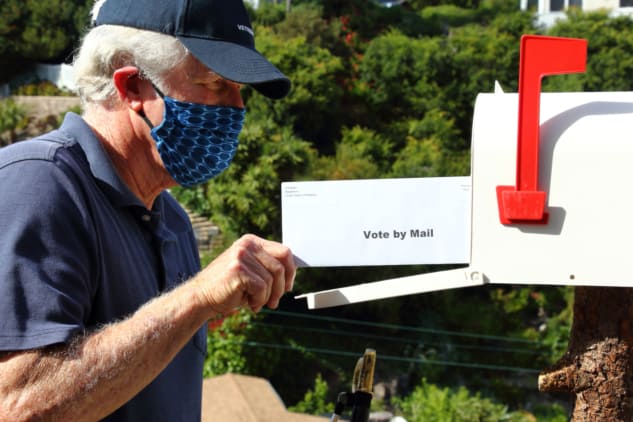
Senate Majority Leader Chuck Schumer (D-NY) has set a self-imposed deadline of January 17th – Martin Luther King Day – to pass sweeping voting rights legislation. This will be a heavy lift given opposition from Democratic Senators Joe Manchin and Kyrsten Sinema to adjusting the filibuster, an essential step in passing voting rights legislation without Republican votes. Nevertheless, President Biden and Hill Democrats feel compelled to try, given that the voting rights of millions of Americans – including and especially seniors – are very much at stake with the 2022 midterm elections approaching.
The push for new federal voting rights legislation became more urgent when Republican-controlled state legislatures across the country began passing restrictive voting laws in the wake of the 2020 election, based on the Big Lie that it was plagued by massive voter fraud.
“Anything that makes it harder for people to cast their vote will have an oversized impact on seniors.” – Florida state Sen. Jeff Brandes
From Florida to Arizona, onerous state laws would make it harder for seniors to vote by imposing new restrictions on mail-in voting, drop boxes, and early voting – all of which older Americans have come to depend on in exercising their right to cast ballots. Some 54% of senior voters cast votes by mail in 2020, according the Chicago Tribune.
The new restrictions would particularly impact seniors of color, many of whom continue to prefer voting in person. Some of the laws erect obstacles to in-person voting, affecting minority precincts the most. Restricted voting hours, stringent ID requirements, and arbitrary prohibitions (enacted in Georgia) against volunteers providing voters with water and food while they wait in overly long lines, seemed designed to target minority voters (especially elderly ones).
“Most people who live in (minority) wards are older African Americans who like to go to the polls because they fought for their right to vote. But… some polling stations (in 2020) were lacking poll workers and not abiding by health guidelines during the coronavirus pandemic.” – St. Louis Public Radio
It’s no secret that Republican state legislators have enacted these laws in order to suppress Democratic votes, alarmed that some traditionally red states turned purple in 2020. But observers have noted that Republicans’ fixation on limiting mail-in voting, for instance, could backfire, as many of their voters are seniors who cast ballots by mail.
“Smaller rural counties have a large elderly population who typically choose to vote absentee because of weather or health concerns. Why are we making it harder for them to vote?” Rebecca Bissell, Adams County, FL Elections Commissioner
The Senate Democrats’ voting rights bill, based on legislation passed in the House in 2021, would neutralize many of the objectionable voting laws enacted in the states. It would, in effect, restore many of the Voting Rights Act protections that the Supreme Court invalidated in 2013, giving the federal government greater oversight of state election laws.
The Senate voting rights bill would also:
*Make Election Day a public holiday;
*Mandate same-day voter registration;
*Guarantee that all voters can request mail-in ballots;
*Restore federal voting rights for ex-felons.
In September, the National Committee to Preserve Social Security and Medicare sent letters to Senators Manchin and Sinema, imploring them to support changes to the filibuster that would allow voting rights legislation to pass the Senate.
“We urge you to support a narrow change to the filibuster rule to allow the Senate to approve new voting rights legislation by a simple majority vote. This crucial legislation will help to protect our democracy and the right to vote for all Americans.” – NCPSSM President Max Richtman, 9/21/21
Unfortunately, neither Senator has budged yet, effectively blocking commonsense legislation that would make it easier for their own constituents to vote. In order to rally support, President Biden will campaign for a “filibuster carveout” during a scheduled trip to Georgia on Tuesday.
Meanwhile, former First Lady Michelle Obama announced on Sunday that she will lead “a coalition of voting rights organizations to register more than a million new voters in the run-up to this year’s mid-term elections,” reports Politico.
With the political muscle of the President and former First Lady behind it, voting rights legislation may have a slightly better chance of passage. At the very least, a Senate floor vote will force Senators to go squarely on the record as supporting – or opposing – fundamental rights cherished by seniors, people of color, and, presumably, all Americans.


